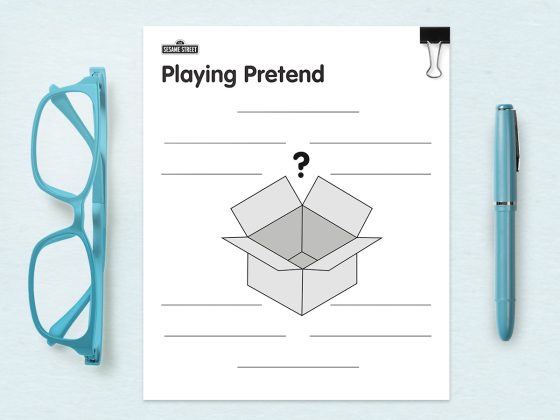
Playing Pretend
In this workshop, parents learn strategies to tune into their inner child and play pretend with kids at home.
Some parents love playing pretend with their child, while others have a harder time getting into character. In this activity, you’ll encourage parents to bring out their inner child and explore ways to engage in pretend play at home.
FIRST, begin a discussion about pretend and the benefits of play. Ask, “Why do you think pretend play is important?” and list responses on chart paper. Mention that pretend play helps children:
- Develop social emotional skills by playing different characters and “walking in someone else’s shoes.”
- Learn how to cooperate and take turns.
- Learn new vocabulary by exploring new situations and places.
- Practice problem-solving skills as they play in groups.
- Overcome fears by experiencing situations through pretend before they do so in the real world.
- Improve math skills as they experiment with numbers and shapes in situations like a pretend grocery store or school.
- Strengthen cognitive skills like planning, as they create characters, assign roles, and figure out context.
- Explore science concepts as they imagine extraordinary places and times, like outer space and lands of dinosaurs.
- Get creative!
NEXT, encourage parents and caregivers to share ways they “played pretend” when they were kids. Ask, “How is it similar to, or different from, how your child plays now?”
THEN, hand out copies of the Playing Pretend page. In small groups, parents can brainstorm different things a box can become, such as a pirate ship, space ship, or treasure chest, then draw (and make notes about) how they would help kids decorate the box to become any of these objects using everyday supplies such as markers and tape.
For instance, if they choose “airplane,” they’d make the flaps into wings, add construction paper squares on the sides for windows, and write the name of the “airline.” They can also draw a stack of handmade airline tickets next to the box.
LAST, have parents share their ideas with the group.
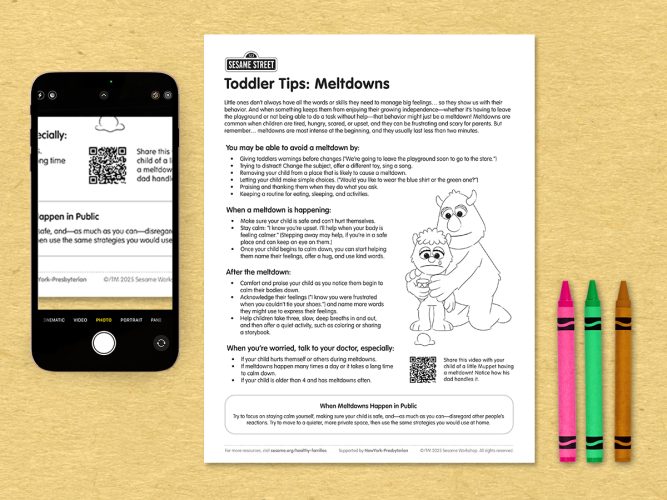
Toddler Tips: Meltdowns
Strategies for during and after a meltdown…and even some ways meltdowns might be avoided.
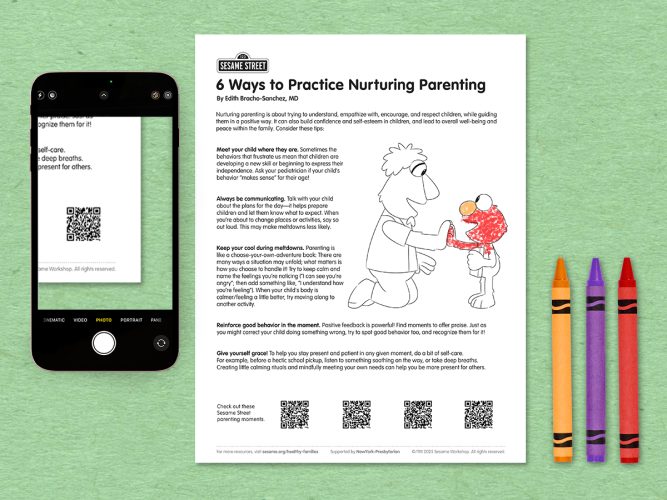
6 Ways to Practice Nurturing Parenting
Tips from a pediatrician on understanding, empathizing with, encouraging, and positively guiding children.
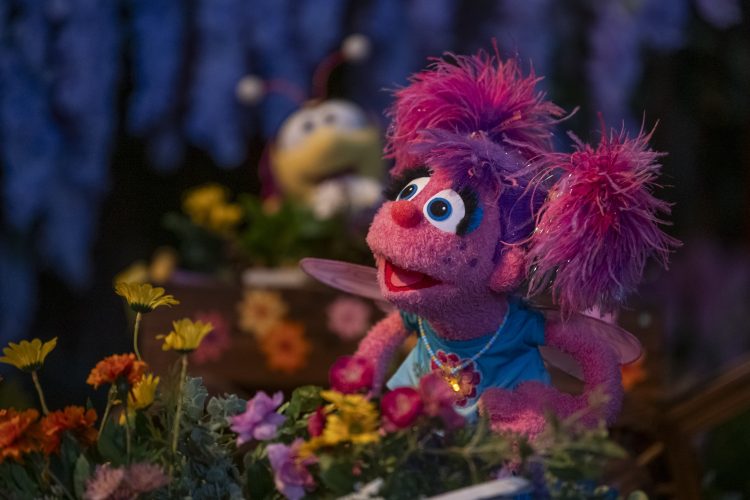
Watch and Play: Abby's Magical Beasties
Watch this episode and explore ways to extend the learning at home.
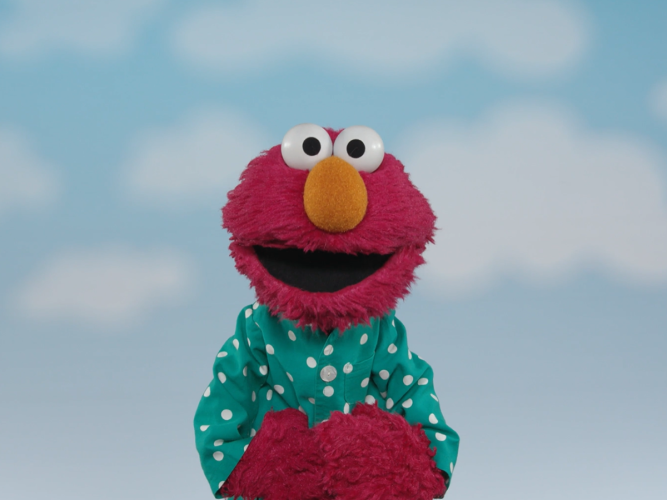
Listen, Feel, and See with Elmo
When children are in the hospital, this mindfulness game can help them soothe themselves.
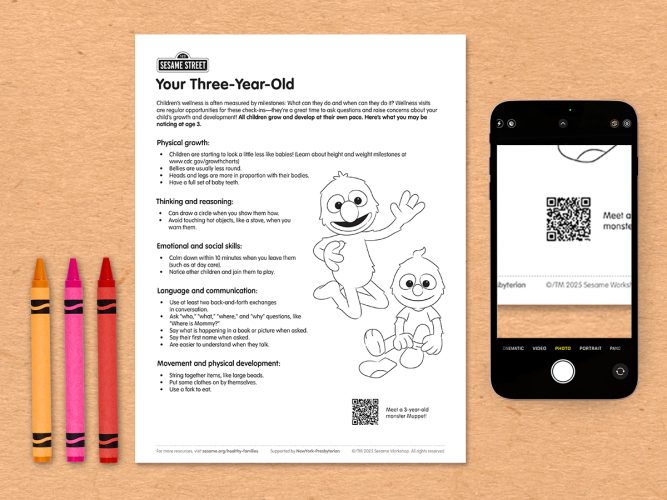
Milestones: Your Three-Year-Old
All children grow and develop at their own pace; use this chart to guide your expectations and observations so you can talk to your child’s pediatrician about questions or concerns.
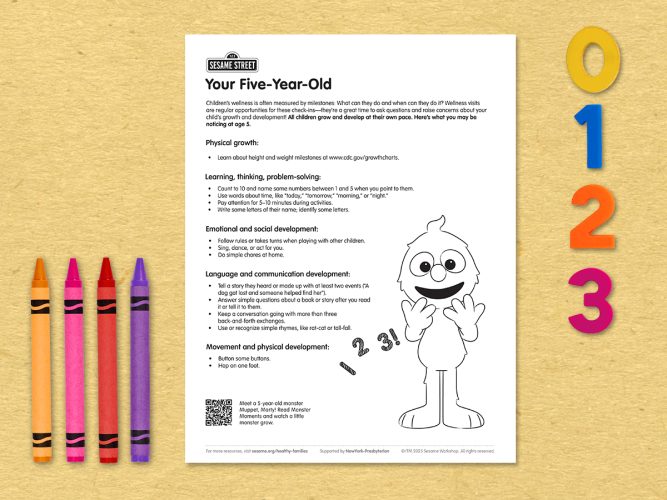
Milestones: Your Five-Year-Old
All children grow and develop at their own pace; use this chart to guide your expectations and observations so you can talk to your child’s pediatrician about questions or concerns.
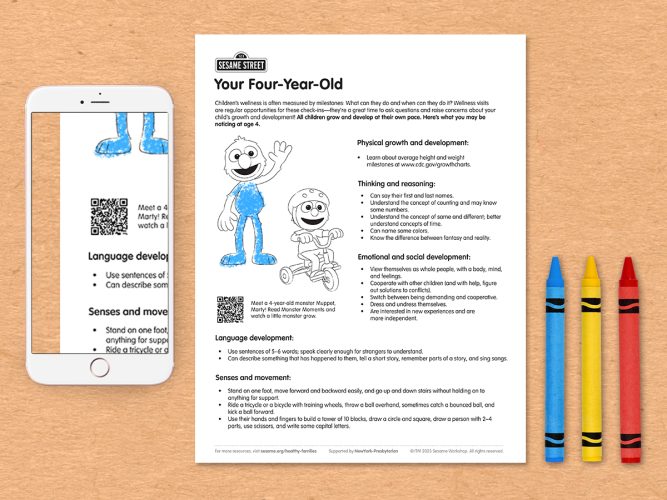
Milestones: Your Four-Year-Old
All children grow and develop at their own pace; use this chart to guide your expectations and observations so you can talk to your child’s pediatrician about questions or concerns.
